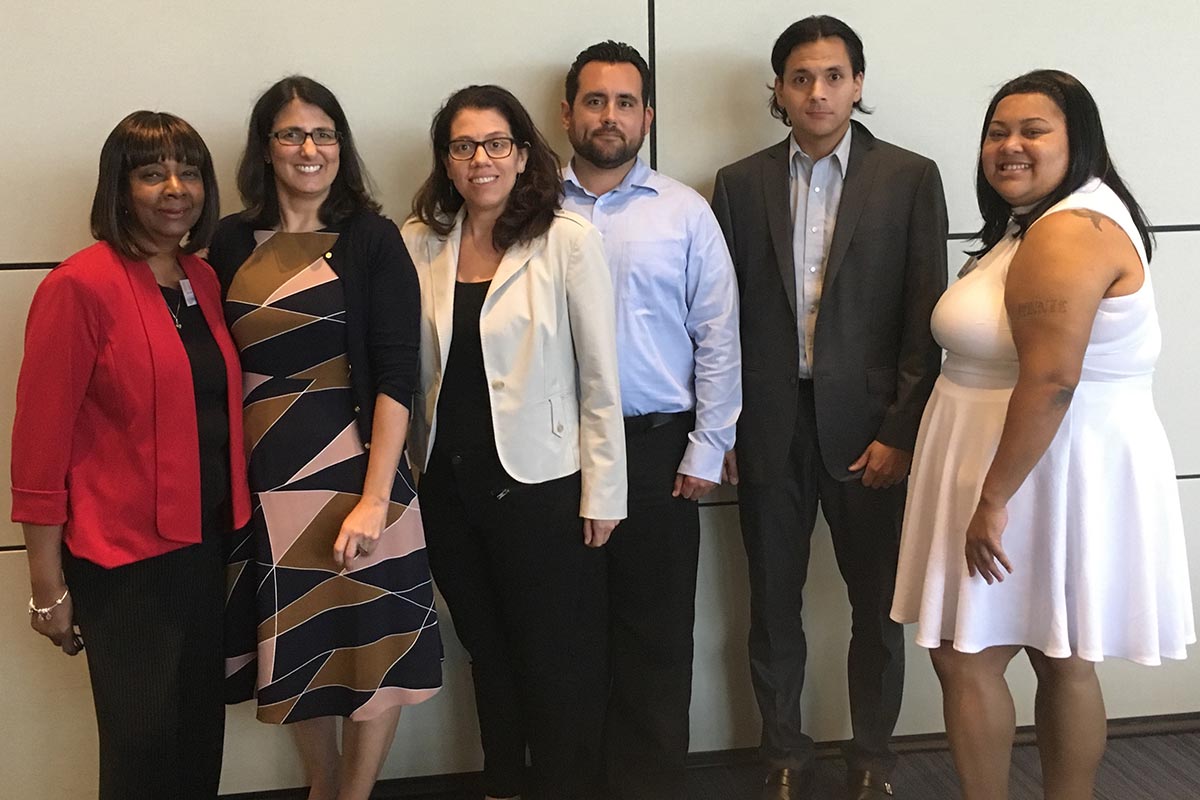
A recent conference at Case Western Reserve University in Cleveland discussed the challenges and scientific advantages of diversity in the study and implementation of precision medicine. Leslie Caromile, assistant professor in Center for Vascular Biology, was among the attendees. Here she elaborates on the importance of diversity in this area and what she brings back from this scientific conference. Caromile, who is of Eastern Cherokee heritage, is a Keystone Symposia Fellow. The Keystone Symposia Fellowship Program is for life science researchers from historically underrepresented populations who in turn mentor aspiring scientists from underrepresented populations.
What brought you to the Conference on Precision Medicine?
When I entered the field of pathology as a graduate student back at University of Washington, I was keenly aware that it was a nontraditional path for a Native individual. But I have come to realize that in a field whose main goal is to improve disease recognition, understand disease causation and pathogenesis, and identify new treatments and preventions, I feel that I can make a positive impact on the health outcomes of our communities. Therefore, I participated in The North Coast Conference on Precision Medicine so that I can further develop my current knowledge base of personalized therapeutic strategies with the overall goal of becoming a successful leader in my field.
Why is it important to have a diverse population of study subjects when developing therapies?
What has been known for a very long time is that every patient is unique. Researchers know this just as well as clinicians do. Therefore, I was happy to see back in 2015, the National Institutes of Health and executive branch of the federal government came to this conclusion as well. In announcing his Precision Medicine Initiative, President Obama said this:
“Most medical treatments have been designed for the ‘average patient.’ As a result of this ‘one-size-fits-all-approach,’ treatments can be very successful for some patients but not for others. This is changing with the emergence of precision medicine, an innovative approach to disease prevention and treatment that takes into account individual differences in people’s genes, environments, and lifestyles. Precision medicine gives clinicians tools to better understand the complex mechanisms underlying a patient’s health, disease, or condition, and to better predict which treatments will be most effective.”
What did you learn at the conference?
There is a lot going on within the field of precision medicine! Researchers and clinicians really paid attention to President Obama’s Precision Medicine Initiative and have taken some very real steps in addressing some of the objectives he laid out. Additionally, I heard personal stories of loss – individuals who had lost friends and family members because of a genetic mutation in a gene called Cyp2c19, which is needed to convert certain drugs to an active form that can then be metabolized by the body. Because of this mutation, this drug does not have the desired effect in some populations and people are dying from it. Although some drugs do have “black box warnings” for situations such as this, many do not – the research hasn’t been done to warrant it. Implementing a precision medicine approach toward treatment could reduce unfortunate events like this.
What do you think can be done to make study populations more diverse?
One of the objectives of the Precision Medicine Initiative was to create a national cohort (PMI Cohort) of 1 million people from diverse social, racial/ethnic, and ancestral populations living in a variety of geographies, social environments, and economic circumstances, and from all age groups and health statuses. The PMI Cohort will broadly represent the U.S. population. The data gathered from the cohort will be powerful and can assist researchers in answering a variety of important health questions – from cancer to Alzheimer’s and beyond.

You had a chance to meet with the great-grandaughter of Henrietta Lacks. What was that like?
Meeting the great-granddaughter of Henrietta Lacks was inspiring. She wanted us to understand how unsettling their family’s experiences with the HeLa cells have been. The family had been unwilling participants. But at the same time, they also wanted to make it clear that they were very much in support of the notion that HeLa cells had done good things for science, that this was something their family had contributed and that medicine was advanced worldwide because of the HeLa cells – they were the cells on which Jonas Salk successfully tested the polio vaccine! Her descendants are now strong advocates for ethical research, informed consent and patient rights – three matters we take for granted today, but 60 years ago this type of respect and protection was only available to a few.



